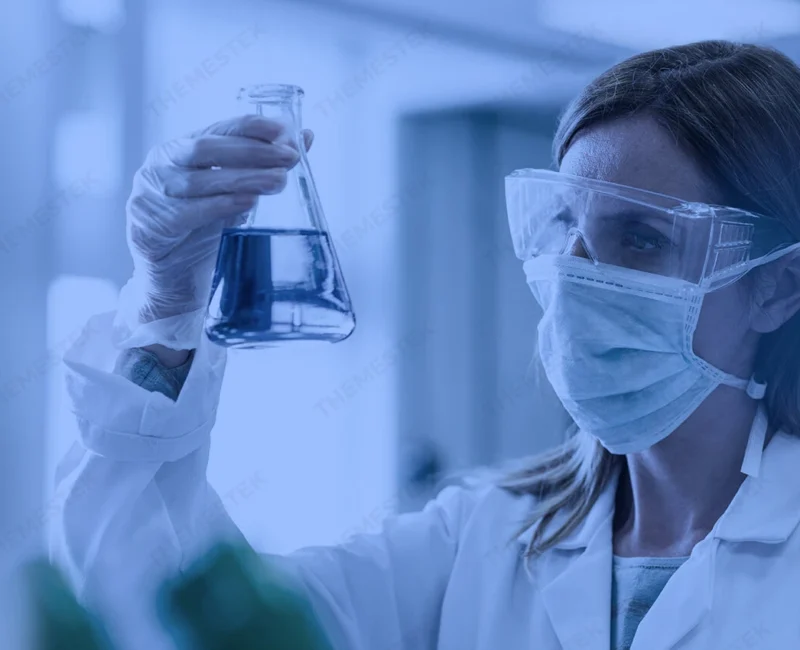SMSLA - YOUR ULTIMATE QUALITY TESTING & INSPECTION SERVICE IN INDIA
We at SMS Labs Private Limited, are passionate to meet and solve the challenges being faced by the industry in their quality service needs. In any given situation we are there as your quality partner to face along with you the growing needs of you and the industry. Our technical experts can assist you in any technical needs If a solution does not already exist, we’ll create a new solution that resolves your issue.
WE’LL ENSURE YOU ALWAYS GET
BEST RESULTS.
BEST RESULTS.
10 +
Major National and International Accreditations
OHSAS 18001:2007 – Provision of Laboratory Services in Food, Metals, Containers and Environmental Aspects.
300
Professionals
Major locations are Chennai, Bangalore, Mumbai, Ahmedabad, Visakhapatnam, Hyderabad, Coimbatore and Cochin.
10 +
Years Of Experience
SMS Labs was established in 2012 with the mission of holistic quality services in Testing, Inspection, Training and Advisory Services.
5000 +
Clientele
SMS LABS is analyzing chemical & biological testing of Environmental (Air & Stack, Water, Soil, sludge & solid waste, PAH, PCB analysis)
EXPLORE OUR MAIN SERVICES
We are always happy to help find the customer needs and specific customised solution for their needs.
SMSLA - YOUR ULTIMATE
QUALITY PARTNER
SMSLA is one of the best Testing Service providers in India, established in 2012 with the mission of holistic quality services in Testing, Inspection, Training, and Advisory services in the field of Food, Water, Environment, and Materials with state-of-the-art facilities.
WE ARE HERE FOR YOU
MAKE AN APPOINTMENT TODAY
MAKE AN APPOINTMENT TODAY
SMSLA provides a wide range of service including Testing, Inspection, Training and other related services like Food packaging material testing for sea food and other sectors. SMSLA also carries out Environmental Analysis, Social compliance, R&D, method development, nutritional profile and shelf-life studies.
WHAT SPEAK PEOPLE
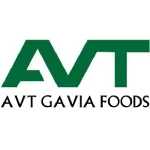
AVt Gavia Foods
Food quality represents the sum of all properties and attributes of a food item that are acceptable to any customer. These food quality attributes include the testing of appearance, size, shape, gloss, Colour, consistency, texture, flavor, contaminants, toxins, residues, antibiotics, nutritional labelling and shelf-life. “Quality food” results in good health. “We greatly appreciate the support from SMS Labs, which always enables us to deliver quality products for our customers across Globe, because good health can’t wait”.

Williams Jones
I have known SMSLA in India from early 2016 and was associated with them in Food Inspection services for my client in Japan for one of the production facility in India. I found inspection team of SMSLA is highly professional and extremely knowledgeable in specific associated processes. Their services were of global standards in integrity and quality. Their technical expertise is clearly visible and their track record with the industry is exemplary.
In my 8 years interaction with them their main laboratory in India for antibiotic residual testing I have to say that I am extremely fortunate to have them as quality partner. They have a highly professional approach and the outstanding skill in understanding and interpreting the technical data and as per national and international guidelines. I highly recommend them...
I am the quality Head one of the key players in Indian poultry. Our Samples are regularly getting analyzed by SMSLA. They have high professional approach in logistics of collection and transportation of samples in specific preserving conditions and friendly officials. Their well trained samplers were always there even in pandemic condition to assist us. One of the best laboratories with good turnaround time and accurate results
LATEST NEWS & BLOGS
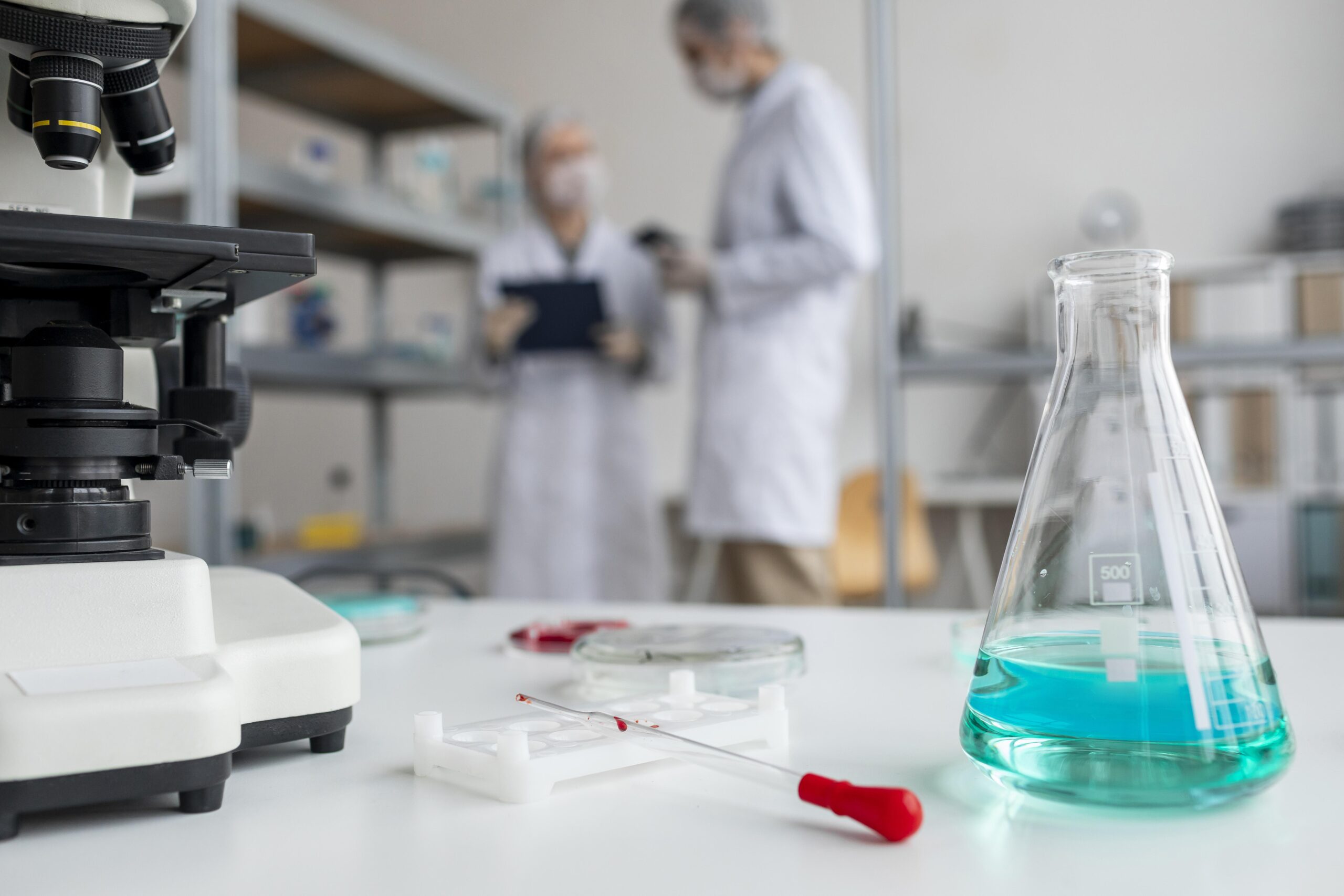
In the globalized world of today, food safety is more important than ever. Food safety from contamination or risks has become more complex due to the fast globalization of food supply networks. Food Safety Standards are relevant in this situation. These regulations offer a thorough framework for the preparation, processing, and distribution of food and are intended to safeguard public health. Food safety standards are essential recommendations that guarantee appropriate food manufacturing, processing, and distribution methods, hence protecting public health. Regardless of where food comes from, these guidelines help prevent foodborne diseases and guarantee that food items are safe from farm to table.
This blog will walk you through the essential elements of Food Safety Standards, exploring global systems, their importance, the different types of certifications available, and how businesses can implement them effectively.
What Are Food Safety Standards?
Food testing lab in India follows set rules and regulations that food businesses must comply with to ensure the quality and safety of their products. By adhering to these guidelines, food safety is maintained, contamination is prevented, and proper handling and storage practices are implemented. Testing labs play a crucial role in verifying that food products meet safety standards and remain safe for consumption throughout the supply chain.
Usually, international organizations, governmental groups, or regulatory bodies with a focus on a particular industry develop the standards. Businesses that want to comply with national and international food safety requirements must adhere to these criteria. If these rules are broken, a corporation may face fines, recalls, or reputational harm.
Why Are Food Safety Standards Important?
The importance of Food Safety Standards cannot be overstated. Here are some of the key reasons why they are vital:
1. Consumer Protection: They keep customers safe from contamination, foodborne illnesses, and other health risks. This is essential to averting potentially disastrous illness outbreaks such as those caused by Salmonella or E. Coli.
2. International Trade: Food companies who want to trade internationally must adhere to international food safety standards. It guarantees that goods fulfill the safety requirements of other nations, facilitating easy import and export processes.
3. Legal Requirements: To operate lawfully, food enterprises are required by law in many countries to adhere to national and international standards. Laws and regulations about food safety are based on these standards, and breaking them may result in legal repercussions.
4. Brand Image: The integrity of a brand is also dependent on adherence to food safety standards. Food safety-focused brands are more likely to be trusted by consumers, which can increase sales and foster customer loyalty.
Global Food Safety Standards and Certifications
There are several global food safety certification systems that businesses can adopt to ensure compliance with Food Safety Standards. Here are some of the most prominent ones:
1.ISO 22000
An international standard known as ISO 22000 describes the specifications needed for a food safety management system. It is relevant to businesses along the whole food supply chain and combines the concepts of Hazard Analysis and Critical Control Points (HACCP). With an emphasis on risk-based thinking, this standard seeks to increase food safety from farm to fork.
2. Hazard Analysis and Critical Control Points (HACCP)
The goal of the internationally renowned HACCP system is to detect, assess, and manage risks associated with the manufacturing of food. As a preventive norm, it aims to address possible safety concerns before they arise. The foundation of many other Food Safety Standards, such as ISO 22000, is HACCP.
3. Global Food Safety Initiative (GFSI)
GFSI is an industry-led program designed to provide a global benchmark for food safety regulations. It includes several certification programs, such as IFS (International Featured Standards), FSSC 22000 (Food Safety System Certification), and BRCGS (British Retail Consortium Global Standards). GFSI offers a global foundation for guaranteeing the integrity, safety, and quality of food products.
4. Codex Alimentarius
The Food and Agriculture Organization (FAO) and the World Health Organization (WHO) produced the Codex Alimentarius, sometimes known as the "Food Code," which is a set of standards, recommendations, and codes of conduct. It addresses many aspects of food safety, such as labeling, additives, pollutants, and cleanliness. The Codex is a reference for rules about food safety and international trade, even though it is not legally binding.
5. FSSC 22000
A thorough certification program called FSSC 22000 offers a framework for handling obligations related to food safety. One of the strictest food safety standards available, it incorporates extra GFSI requirements, industry-specific Pre-Requisite Programs (PRPs), and ISO 22000.
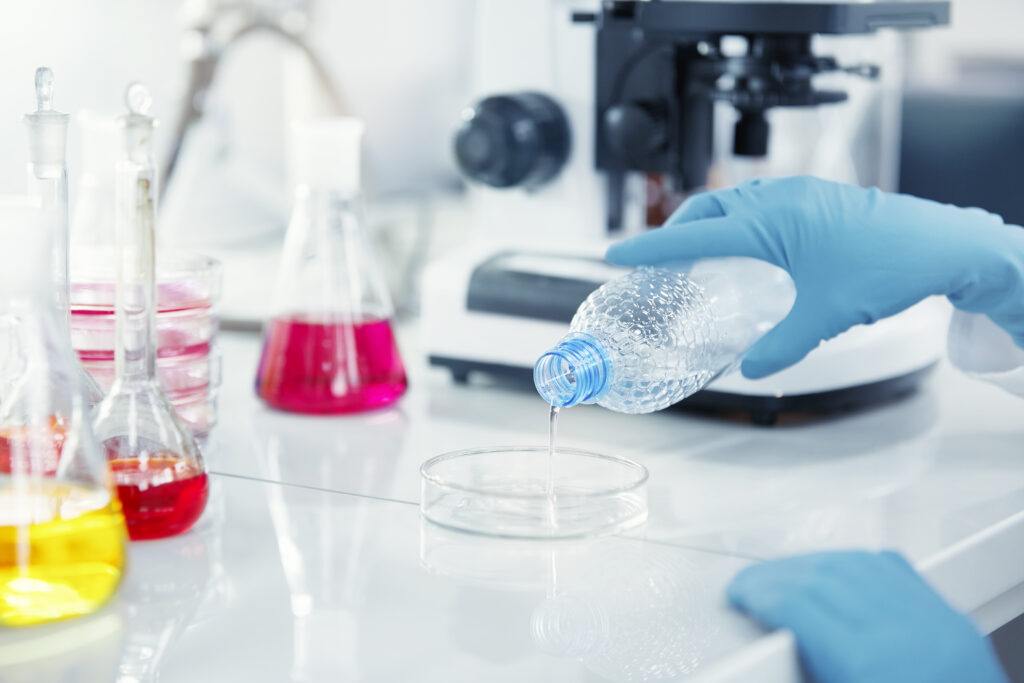
Key Elements of Food Safety Standards
Every Food Safety Standard shares some common elements, regardless of whether it’s ISO 22000, HACCP, or another certification system. Here are the core components:
1. Hazard Identification and Risk Assessment
Every food safety system starts with an understanding of potential risks that could contaminate food items. These risks could be physical (such as broken glass or metal), chemical (such as insecticides), or biological (like microorganisms). Businesses can identify key areas to monitor and prioritize them by conducting risk assessments.
2. Control Measures
Companies must set up control measures to prevent or reduce risks if they have been identified. This could entail establishing critical control points (CCPs) in the production process where contamination is most likely to occur and making sure these locations are continuously monitored.
3. Hygiene and Sanitation Practices
Maintaining good hygiene and sanitation throughout the production and handling processes is a key component of the Food Safety Standards. Cleaning staff and equipment regularly also contributes to the prevention of contamination.
4. Traceability Systems
Traceability ensures that food products can be traced back through the supply chain. This is vital for quick and efficient responses during food recalls, helping companies pinpoint where contamination may have occurred.
5. Continuous Monitoring and Improvement
Food Safety Standards require businesses to regularly audit and review their systems to ensure they are functioning as intended. Continuous improvement is a key principle, allowing businesses to adapt to new risks or regulatory changes.
Conclusion
Food Safety Standards are not just about compliance—they are about protecting consumers, enhancing brand reputation, and ensuring global trade. With various international certifications like ISO 22000, HACCP, and FSSC 22000, businesses can build robust food safety management systems that cover every aspect of their operations. Understanding and implementing these standards can be the key to a safer, more successful food industry. By following the outlined principles, companies can meet regulatory requirements, gain consumer trust, and contribute to the overall safety of the food supply chain.
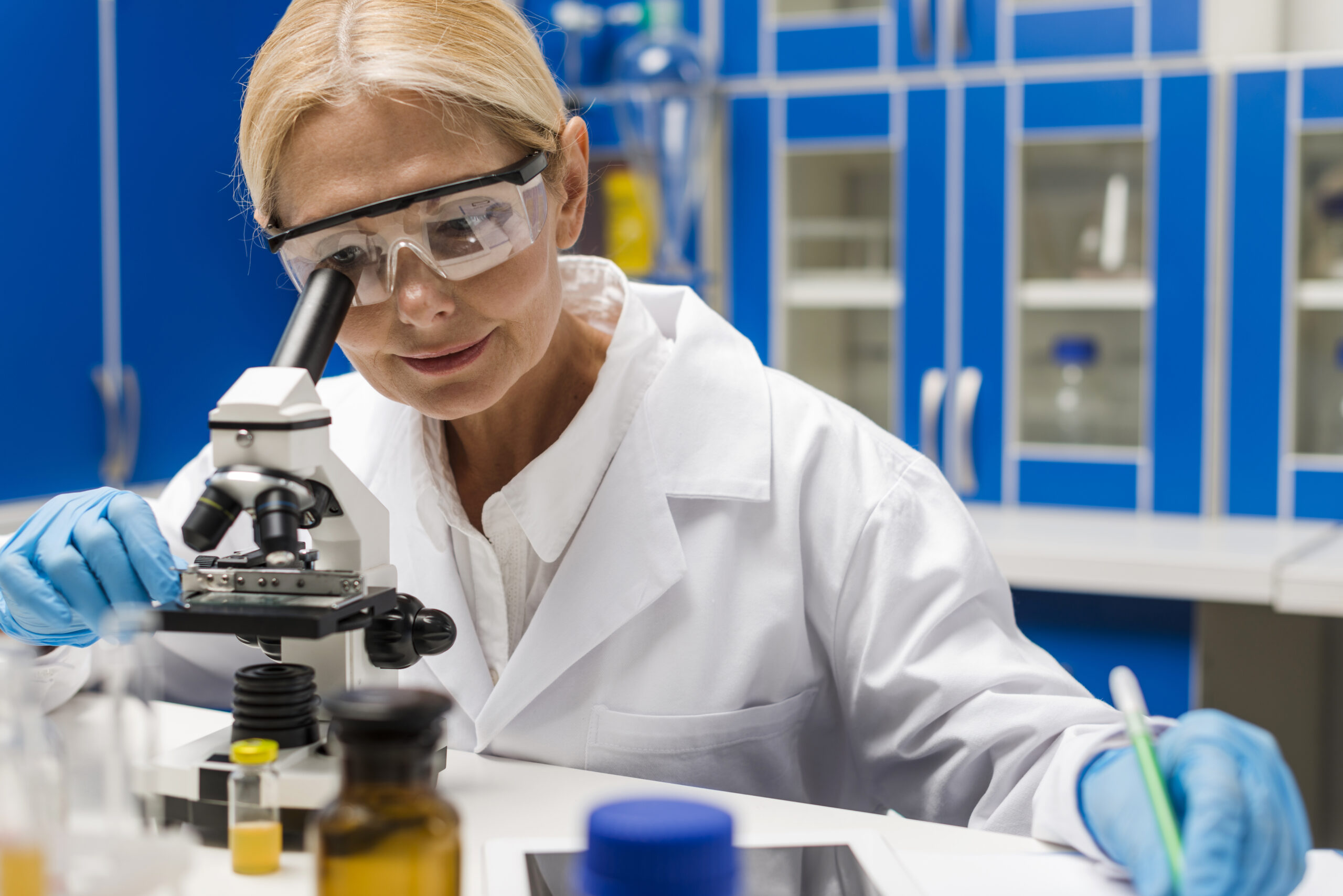
There has never been a more pressing need for strict food safety and quality assurance in the fast-paced, globally integrated food sector of today. Strict regulations must be followed at every stage of the food production process, from farm to table, to guarantee that consumers obtain high-quality, safe products. The top food testing labs are at the center of this process and are essential to guarantee both quality and adherence to legal requirements. We will discuss the function of these labs, the services they provide, and the reasons why any food business must collaborate with the best food testing labs in this blog.
Understanding the Importance of Food Testing
The scientific examination of food products to make sure they adhere to safety, quality, and legal requirements is known as food testing. This procedure involves checking the food for impurities, confirming its nutritional value, and making sure it is free of dangerous elements like pesticides, heavy metals, and infections. The main objectives are to guarantee that the food satisfies both domestic and international standards and to shield customers from any health hazards.
The best food testing labs are equipped with state-of-the-art technology and staffed by experienced professionals who understand the complexities of food safety and quality. These labs conduct a wide range of tests, including microbiological analysis, chemical testing, allergen detection, and more. By providing accurate and reliable results, these labs help food producers maintain the highest standards of safety and quality.
The Role of the Best Food Testing Labs in Quality Assurance
1. Ensuring Product Safety: Ensuring food items are safe for consumption is the main responsibility of the best food testing labs. This entails testing for dangerous bacteria that might result in major health problems, such as Salmonella, E. Coli, and Listeria. Chemical pollutants like pesticide residues, heavy metals, and food additives are also tested for at these labs. By detecting and removing these hazards, food testing laboratories in India and around the world are essential to maintaining public health.
2. Compliance with Regulatory Standards: Food enterprises must abide by the laws that govern food safety, which are unique to each nation. The best food testing labs assist companies in making sure their products fulfill all relevant criteria by being knowledgeable about the regulatory needs of various locations. For example, in India, food testing laboratories make sure that food products meet the standards set forth by the Food Safety and Standards Authority of India (FSSAI), which is meant to safeguard consumers and guarantee product quality.
3. Nutritional Analysis and Labeling: For the sake of regulatory compliance and consumer trust, accurate nutritional labeling is crucial. Comprehensive nutritional analysis, encompassing macronutrients, vitamins, minerals, and other elements, is offered by the top food testing labs. This data is essential for producing accurate labels that satisfy legal and consumer standards. Such services are essential for businesses aiming to promote their products both nationally and internationally at an Indian food testing facility.
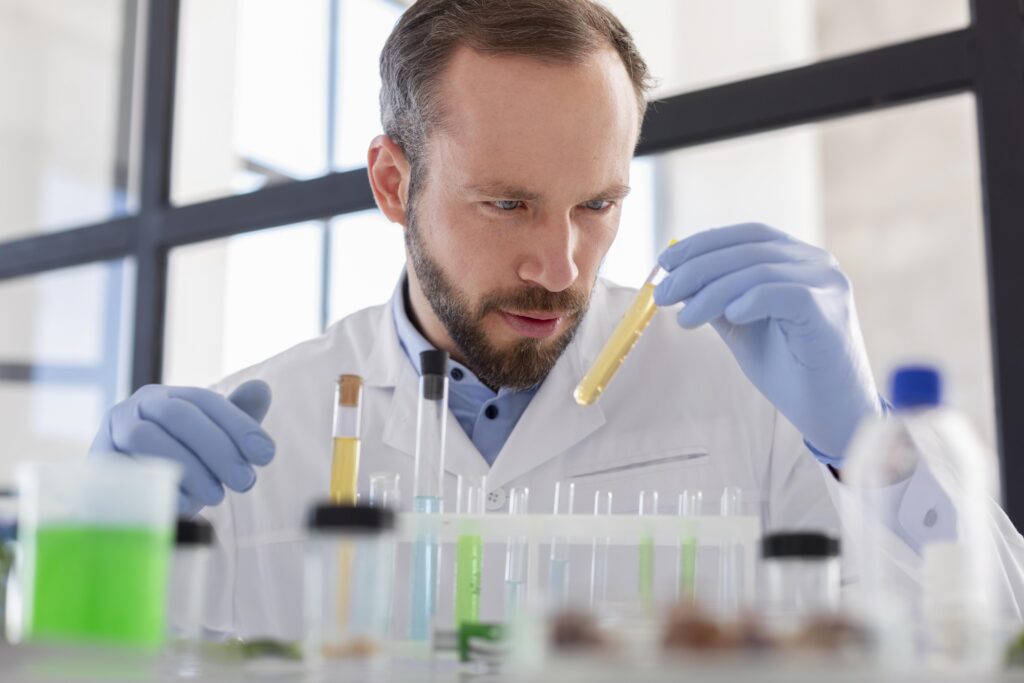
4. Detection of Allergens and Contaminants: Food allergens pose significant health risks for sensitive individuals. The food testing labs have advanced capabilities to detect even trace amounts of allergens like peanuts, gluten, and dairy. Additionally, these labs can identify contaminants such as mycotoxins, which are toxic substances produced by molds and can cause serious health problems. By ensuring that products are free from these hazards, protect consumers and enhance product safety.
The Role of the Best Food Testing Labs in Compliance
1. Third-Party Verification: Independent evaluation of a product's quality and safety is offered by third-party testing conducted by a recognized laboratory. Establishing consumer trust and proving regulatory compliance depends on this verification. The top food testing labs guarantee that products fulfill all requirements by providing third-party verification services that are acknowledged by industry stakeholders and regulatory bodies.
2. Support for International Trade: Adherence to global food safety regulations is crucial for companies wishing to export their goods. The top food testing labs offer the certification and testing required to satisfy the demands of many markets, including the US, EU, and others. For example, a food testing facility in India can assist companies in navigating the challenges of global trade by making sure their goods satisfy the exacting safety and quality requirements demanded by other markets.
3. Continuous Monitoring and Quality Control: Food safety and quality are not static; they require continuous monitoring to ensure ongoing compliance with regulatory standards. The food testing labs offer ongoing quality control services, including routine testing and analysis, to help businesses maintain their standards over time. This proactive approach to quality control ensures that any potential issues are identified and addressed before they become serious problems.
Why Choose the Best Food Testing Labs?
Any food business must select the best food testing lab. The top food testing labs combine cutting-edge equipment, knowledgeable personnel, and a thorough awareness of legal requirements. They support companies in ensuring the quality and safety of their goods while adhering to all relevant regulations by offering dependable and accurate findings.
The top food testing labs also provide a variety of services that are specifically designed to meet the requirements of various businesses, ranging from major multinational enterprises to small-scale producers. Whether you require regular testing, nutritional analysis, or assistance with international commerce, working with a premier lab guarantees that your company is prepared to take on the challenges posed by the modern food industry.
Conclusion
The role of the top food testing labs in ensuring quality and compliance cannot be overstated. These labs are essential for protecting public health, maintaining consumer trust, and ensuring that food products meet both national and international standards. By providing accurate, reliable testing and analysis, the best food testing labs help businesses navigate the complexities of the food industry and achieve success in an increasingly competitive market.
For businesses in India and around the world, choosing the right food testing lab is a critical decision. By partnering with a trusted, accredited lab, you can ensure that your products meet the highest standards of safety and quality, protecting both your customers and your brand.
In summary, whether you're a small producer or a large multinational, working with the best food testing labs is essential for ensuring that your products are safe, high-quality, and compliant with all relevant regulations. This partnership is not just a smart business decision; it's a commitment to excellence in the food industry.
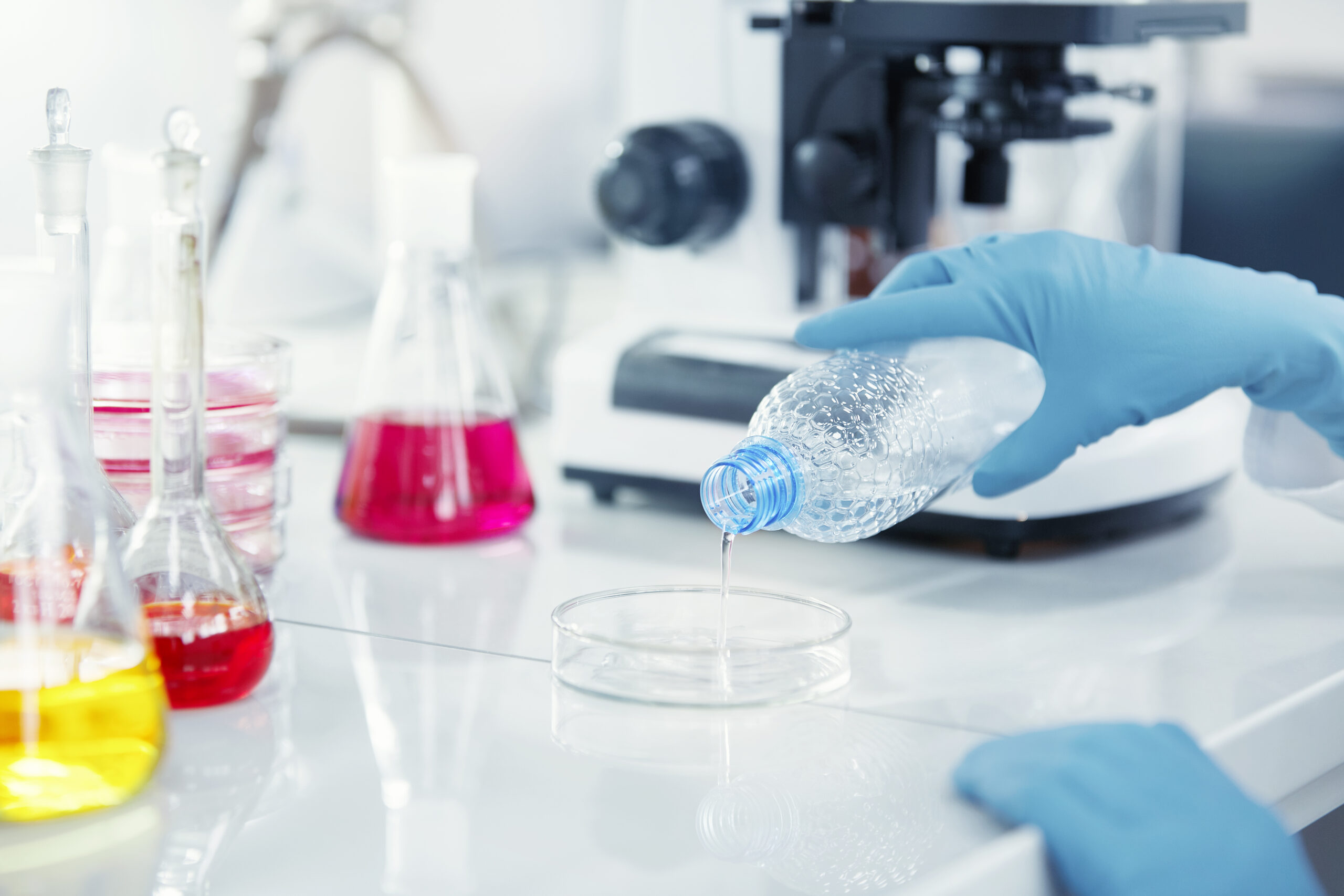
It is crucial to guarantee the safety and quality of food items in the modern, international food sector. Long transit distances before food is consumed greatly increase the danger of adulteration, contamination, and foodborne diseases. Food Testing Standards are relevant in this situation. The foundation of the food industry, these standards offer guidelines and procedures to guarantee that food items are safe to eat and live up to quality standards. This thorough book will explore the fundamental Food Testing Standards, their significance, and how the food business is shaped by them.
What Are Food Testing Standards?
Food testing standards are a collection of regulations, policies, and practices by both domestic and foreign organizations to guarantee that food items fulfill safety, quality, and labeling specifications. These guidelines address various topics related to food production, such as distribution, storage, packaging, manufacturing procedures, and ingredient safety. They are intended to safeguard customers against health hazards and guarantee that food items are of the highest caliber and devoid of impurities.
The Importance of Food Testing Standards
The significance of Food Testing Standards cannot be overstated. These standards are crucial for several reasons:
1. Consumer Safety: Shielding customers from possible health risks is the main goal of the Food Testing Standards. By following these guidelines, food goods are guaranteed to be free of dangerous impurities including pesticide residues, heavy metals, poisons, and infections.
2. Quality assurance: By establishing standards for taste, texture, appearance, and nutritional content, food testing standards contribute to the preservation of food items' quality. Respecting these guidelines guarantees uniformity in food items, which fosters consumer confidence.
3. Regulatory Compliance: To meet the requirements set forth by national and international authorities, food makers must adhere to the Standards. Legal action, product recalls, and reputational harm to the brand are all possible outcomes of noncompliance.
4. Market Access: Adhering to international Testing Standards is essential for food exporters. Compliance with these standards ensures that products meet the regulatory requirements of the destination country, facilitating smooth entry into global markets.
5. Environmental Protection: Some also focus on sustainable practices, ensuring that food production does not harm the environment. This includes standards for pesticide use, waste management, and energy consumption.
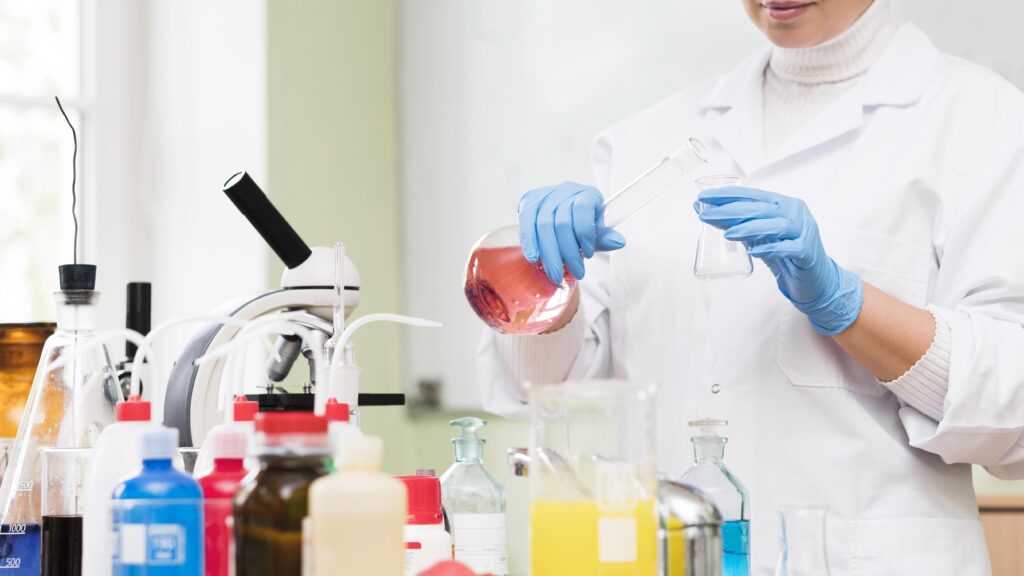
Key International Food Testing Standards
Several organizations worldwide are responsible for developing and maintaining Testing Standards. Below are some of the most influential standards and organizations in the food industry:
1. Codex Alimentarius
One of the most significant international organizations for food testing standards is the Codex Alimentarius Commission, which was founded by the Food and Agriculture Organization (FAO) and the World Health Organization (WHO). The "Food Code," also known as the Codex Alimentarius, establishes international guidelines for food quality, safety, and labeling. A vast variety of food products are covered by these guidelines, including food additives, processed foods, and unprocessed agricultural commodities.
2.ISO 22000
A worldwide standard for food safety management systems is ISO 22000. It lays forth the specifications for a food safety management system that any company, from farm to fork, can implement. To guarantee food safety across the supply chain, ISO 22000 incorporates the concepts of the Hazard Analysis and Critical Control Point (HACCP) system with additional Food Testing Standards.
3. FDA Food Safety Modernization Act (FSMA)
Under the Food Safety Modernization Act (FSMA), the Food and Drug Administration (FDA) in the United States is in charge of ensuring the safety of food items. To assure food safety, the FSMA places a strong emphasis on preventative measures, moving the emphasis from responding to contamination to preventing it. The act, which is among the most extensive food safety laws in the world, establishes stringent Food Testing for both local and imported food products.
4. European Union Food Law
Regulation (EC) No 178/2002, the General Food Law, is part of the EU's well-established regulatory system for food safety. To guarantee that food products are safe for consumption and satisfy strict standards, this law establishes the framework for all food testing throughout the European Union. In the EU, the European Food Safety Authority (EFSA) is essential in establishing food testing and offering scientific recommendations.
5. Global Food Safety Initiative (GFSI)
The Global Food Safety Initiative (GFSI) is a private organization that benchmarks various food safety standards, including ISO 22000, BRC Global Standards, and the Safe Quality Food (SQF) Program. GFSI-certified standards are recognized worldwide and are essential for companies that want to demonstrate their commitment to food safety and quality.
Key Components of Food Testing Standards
Testing Standards for food encompass various aspects of food safety and quality. Some of the key components include:
1. Microbiological Testing
The Food Testing heavily rely on microbiological testing. It entails checking food items for dangerous microbes like fungi, viruses, and bacteria. Tests for Salmonella, E. Coli, Listeria, and Staphylococcus aureus are frequently performed. Food products are guaranteed to be free of germs that could result in foodborne illnesses through microbiological testing.
2. Chemical Contaminant Testing
The goal of chemical contaminant testing is to find dangerous substances in food items. Testing for pesticide residues, mycotoxins, heavy metals (including lead, mercury, and arsenic), and food additives are all included in this. To safeguard the health of consumers, Food Testing mandate that certain substances be present below permissible ranges.
3. Nutritional Analysis
A further important part of the Food Testing is nutritional analysis. This entails determining the nutritional composition of dietary items, taking into account both macronutrients (proteins, fats, and carbs) and micronutrients (minerals, vitamins). Nutritional analysis makes ensuring food products are accurately labeled and give consumers the information they need.
4. Allergen Testing
Allergen testing is essential for identifying the presence of allergens such as peanuts, gluten, dairy, and soy in food products. Food Testing require accurate labeling of allergens to prevent allergic reactions in sensitive individuals.
5. Shelf Life Testing
The duration for which a food product is safe and of good quality under particular storage conditions is ascertained by shelf life testing. Food Testing Standards guarantee correct labeling and shelf life determination, avoiding the sale of spoiled or expired goods.
Challenges in Implementing Food Testing Standards
While Testing Standards are essential for ensuring food safety and quality, their implementation can be challenging for food manufacturers. Some common challenges include:
1. Cost: It can be costly for small and medium-sized businesses (SMEs) to comply with food testing standards. Testing, certification, and satisfying legal requirements can come at a heavy financial cost.
2 . Complexity: Due to the international scope of the food sector, businesses have to manage a complicated network of national Testing Standards . This calls for certain knowledge and can take a long time.
3. Rapidly Changing Regulations: New scientific discoveries, newly discovered pollutants, and customer demands all contribute to the ongoing evolution of food testing standards. For businesses, keeping up with these changes can be difficult.
4. Technology Integration: Investing in equipment and training is necessary to use the newest technology in food testing, such as DNA sequencing for pathogen identification. Not every business has the means to incorporate these cutting-edge technologies into their
Conclusion
Food Testing Standards play a vital role in ensuring the safety, quality, and consistency of food products. They protect consumers from health risks, ensure regulatory compliance, and facilitate access to global markets. As the food industry continues to evolve, staying informed about key and their implementation is crucial for food manufacturers, suppliers, and regulators. By understanding and adhering to these standards, companies can build consumer trust, enhance their brand reputation, and contribute to a safer food supply chain.













